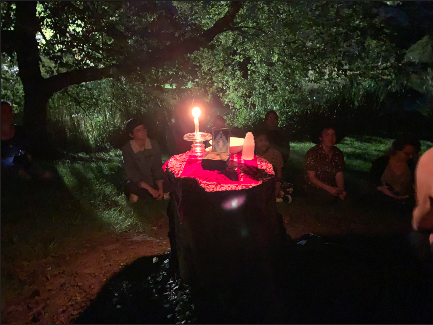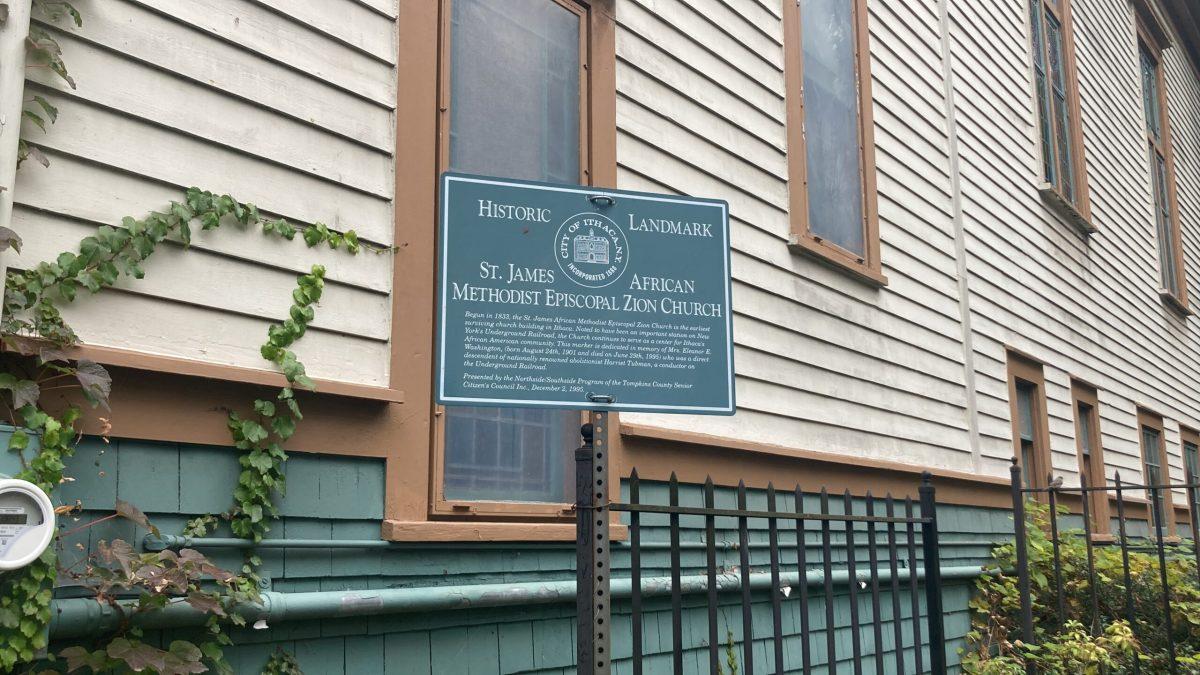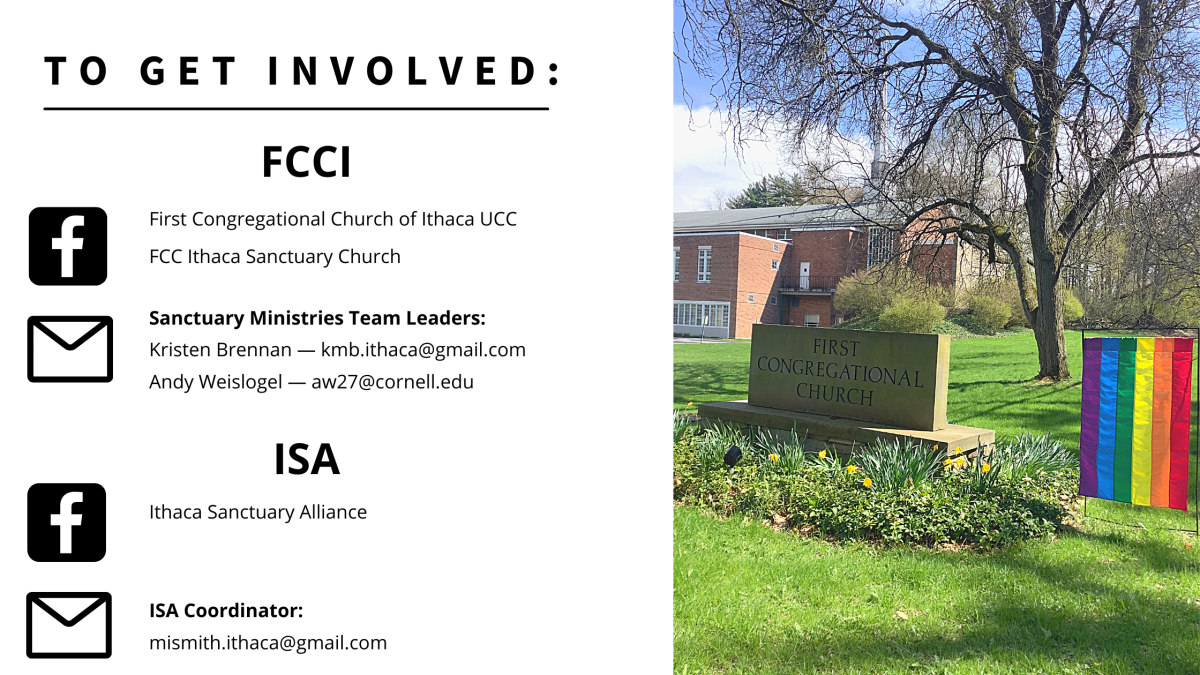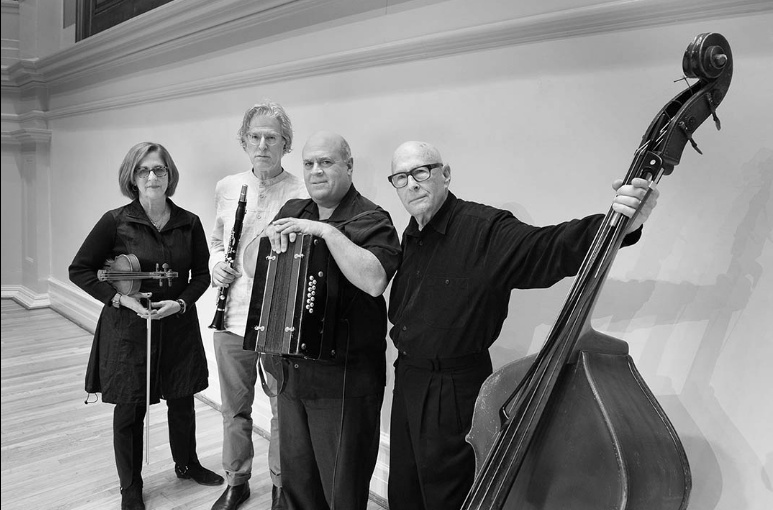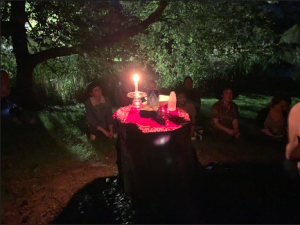
ITHACA N.Y.- During a warm and slightly breezy night, a lone candle flickers on a tree stump surrounded by jovial Ithaca College students. Members of Ithaca’s pagan community pass around cinnamon-basil cookies and converse with one another about the significance of the full moon.
“So a lot of pagan paths will honor things in nature, for example, celestial bodies like the moon,” said Marco Painter, president of IC’s Pagan Community.
On Sept. 20 members of the Pagan Community and other Ithaca College students gathered near Mueller Chapel to take part in a moon ritual.
“By honoring [the moon] and its cycles, we can kind of recognize cycles within ourselves,” said Painter. He added that many pagans say they can draw energy from the moon when it’s full. This is important to keep in mind when completing difficult tasks, Painter said.
Honoring celestial bodies and rituals are aspects of paganism.
“Paganism is this very big umbrella term that covers a lot of different trends,” Painter explained, “ranging from very, very old, like Babylonian all the way to something very recent, like Wicca that encompasses this idea of nature-based worship. They tend to be polytheistic in nature and may worship one God out of a collection of several or multiple guides.”
Paganism has many different denominations and variants. Some draw inspiration from ancient Egyptian religion, others from the ancient Greek gods, Norse or Celtic. Painter identifies specifically as a Norse pagan.
Originally the word “Paganism” was used by the church to describe anyone who practiced a religion that was non-abrahamic. Abrahamic religions include Christianity, Islam and judaism, all of which are monotheisic religions that worship one god. Over time the meaning of Paganism has evolved to emcompasses aspects of voodooism, hinduism and many other polytheistic religions.
Painter said he discovered paganism through dissatisfaction of the religion and religious communities he grew up with.
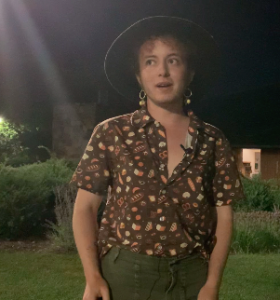
“It actually began a long way back. I was raised in a Jewish household, but I kind of felt like a bit of an outsider.”
“ And as I was growing older, I noticed other people getting into witchcraft and by extension paganism as well, I gained an interest and thought, oh, you know, might as well jump ship.”
Painter says he intends to implement Paganism into his aspiring career as a religious counselor.
Many religious counselors happen to be from semitic religions like Christianity and Judaism, which according to Painter, oftentimes can bring up trauma for members of the Pagan community. Providing an option for Pagans to talk about their religious trauma, is what Painter wants to do.
“So there’s some communal anger towards not just those communities, but monotheism in general,” Painter said. “But if we can work on communicating and healing, that will not only help with everything that’s happening inside so they can heal and move on [but also help] not bring the dogmas and doctrines that were damaging into the pagans community and basically spread it there.”
If campus community members are interested in Paganism or want to discuss different facets of religion they can join the Pagan community for interfaith discussions. The pagan community hosts these discussions in Mueller Chapel every Friday from 4:30 p.m. to 5:30 p.m.

